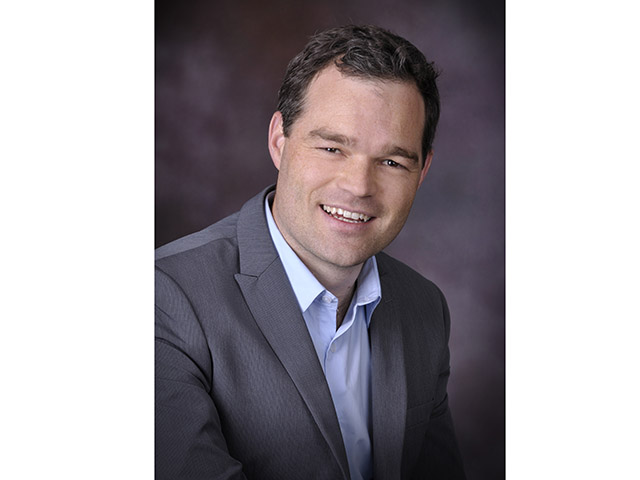Russel Lamberti on Finding good explanations in the information age
By Staff Writer 29 September 2020 | Categories: feature articles
TechSmart Features sponsored by:
Russell Lamberti has a reputation for speaking out against dogma. Founder and strategist at ETM Macro Advisors, and co-author of the book When Money Destroys Nations, Lamberti has earned his reputation as a critical thinker on a wide-ranging array of subjects. He thus was the perfect guest to launch On the Brink, a new format joining Andile's popular series of webinars. Here, Andile founder Andries Brink hosts powerful and creative thinkers to discuss the world's issues.
Known for not beating around the bush, many hold Lamberti in high regard for his candid views. Yet he cautioned that even he can't say everything and that the truth is no excuse to ignore tact. Fundamental to respecting information is to appreciate that we don't all think alike:
"[The truth has] got to be said respectfully. It's got to be said with magnanimity, it's got to be communicated in a way that where you appreciate that there are opposing views and that people come from different perspectives."
Unfortunately, the pursuit of knowledge is being tainted. The discussion between Lamberti and Brink soon led to the difference between Keynesian economics and the Austrian School that Lamberti favours. This is not splitting hairs: Lamberti is concerned that a stoic and dogmatic approach to how economies work is leading us down the wrong path. We've become too convinced that data can tell us everything:
"I think economics has taken a really, really wrong turn down the path. It is this idea that we can crunch the numbers and that data tells us everything we need to know. What you find when you dig into Keynesian economics is that the underlying presuppositions and assumptions - about how the world works, how humans behave, and how reality exists - are quite weak. They don't actually hold up. And they make some tremendous leaps in logic."
The conversation explored how this came to be. Lamberti's career started only a few years before the 2008 crash. Still a bright-eyed adherent to what he studied, Lamberti suddenly found that he knew much less than he thought. Worse - the professionals he looked up to also didn't have answers. Something wasn't adding up, so he started tapping one of the information age's great benefits - self-learning - and began figuring it out for himself.
"There is this thing called the economy. We'll explain it to you a little bit, but once you get the basics, all you need to know is that it can be tweaked and fiddled and changed from the top down. If we pump more money in and if we lower interest rates, and we put it into the models just right, we can spit out the outputs that we want. That's just a very technocratic, ivory-tower, unanchored way of thinking about the economy."
Such issues are not limited to economic thinking but seem to be spreading as information culture becomes more commonplace. Lamberti's central contention is that we don't anchor our assumptions, but instead treat them as truth and then place more assumptions on top of them. Centralised planning systems often fall for this mistake because they don't provide for a wide variety of opinions to inform and challenge assumptions:
"It doesn't mean there's no place for governance and decisions that affect people beyond just the individual. But when we do that, we need to understand the forces of complexity that are operating against us, that are telling us: be careful that you don't over centralise these decisions because you start distorting the picture for real human behaviour."
One example of this is the ongoing saga around COVID-19 decisions. Lamberti is a member of PANDA, the group of actuaries and other professionals who openly challenge aspects of the government's approach to the pandemic. Lamberti doesn't deny that the pandemic has dangerous consequences. But he is concerned that the models being used are not nearly as grounded and tested as they ought to be, and the state's continued reliance on these is making the situation worse. There is too much dogmatic reliance on certain models and not enough discussion over whether the models are correct.
Numbers, Lamberti warned, do not give enough information on how the world behaves. He gave the example of a spike of non-Corona deaths during the lockdown. According to the South African Medical Research Council, there were 17,000 more natural deaths between May and June than before. Are these underreported COVID-19 deaths or something else?
"Some people interpret that as saying we're undercounting Corona deaths. But another explanation is that lockdown is contributing to more deaths because we've got untreated cancers or TB or other things. It doesn't mean that that second explanation is definitely correct either. But it just shows you that just looking at numbers on the surface doesn't give you enough. You have to have a hypothesis. And you want to be able to test that hypothesis. And it should be something that you can then accept or reject, or accept provisionally or reject provisionally."
Lamberti urged us to respect that there are different levels of interpreting data. He often tests ideas using a spreadsheet, but that is a far cry from the more comprehensive and cohesive information he hands to his clients.
Considering he wrote the book on Zimbabwe's collapse into hyper-inflation, Lamberti certainly has an authoritative opinion on how bad decisions can utterly destroy economies and the lives they support. COVID-19 is playing out a scenario we've seen before in market crashes, failed national policy and other examples. Finding answers in the information age means going beyond the data. It requires us to challenge dogma, truly try to understand how humans behave, and to ground our assumptions in ways we can test them.
"My concern is not that people get models wrong," Lamberti said. "That happens to everyone. But it's when you take that kind of speculative activity, modelling activity, making very, very flimsy conjectures about the future. And you translate that into policy. With centralised risk management for 60 million people, it's quite frankly inhumane because it disallows radically different people from participating," he concluded.
Most Read Articles

Have Your Say
What new tech or developments are you most anticipating this year?




